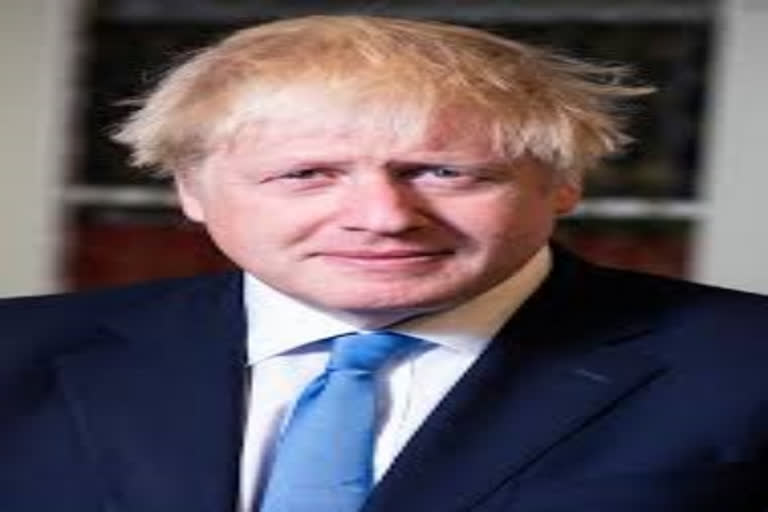LONDON: British Prime Minister Boris Johnson is to chair a meeting of the government’s emergency committee later Monday after France closed its borders to the U.K. to stem the spread of a new strain of the coronavirus circulating in London and the southeast of England.
The meeting of the COBRA civil contingencies committee comes amid warnings of “significant disruption” around the ports in the English Channel, with tailbacks going back miles into Kent, a county in southeastern England.
The transport of freight brought in by lorries is facing massive disruptions after France closed its borders for 48 hours, which means lorries cannot get across the English Channel by boat. Goods arriving on containers are unaffected.
The government has urged everyone to avoid traveling to Kent, which hosts many of the cross-Channel ports. Dover notably sees around 10,000 lorries pass through every day. Eurotunnel, the rail service that links Britain with mainland Europe, has also suspended services.
Canada and Poland are among the latest countries to halt flights from the U.K., following the lead of many in Europe. France, Germany, Italy, the Netherlands, Belgium, Poland, Austria, Denmark, Ireland, and Bulgaria were among those who on Sunday announced widespread restrictions on flights from the U.K.
The moves come in the wake of Johnson’s announcement on Saturday that he was placing London and the southeast of England in a new Tier 4 level of restrictions after a warning from scientists that the new variant of the coronavirus was spreading far faster than existing strains.
He said the new variant of the virus is 70% more transmissible and is driving the rapid spread of new infections. On Sunday, the U.K. recorded a record daily total of 35,928 new infections.
While experts are stressing that there is no evidence that the new strain is any more lethal, it’s inevitable that more cases will lead to more hospitalizations and subsequent virus-related deaths.
British Transport Secretary Grant Shapps said France’s ban on freight hauliers was “slightly surprising” and that he is putting contingency plans for Kent in place, including the opening up of a lorry park and providing “welfare” for some of those drivers stuck there.
“The Kent Dover-to-Calais Eurotunnel, what we call the short straits, is probably about 20% of goods going to and from, in and out of the country,” he told Sky News. “But it’s not the mainstay. Most goods actually come in and out by unaccompanied containers and those will continue to flow.”
Shapps insisted that the public won’t notice any shortages “for the most part” as a result of the ban on lorries and that the supply of coronavirus vaccines will continue as they come via containers that are unaffected.
Read: Boris Johnson admitted to hospital for COVID-19 tests
All this economic disruption comes at a time of huge uncertainty for the U.K., less than two weeks before it leaves the EU’s tariff-free single market and customs union on Dec. 31.
Though the U.K. left the bloc on Jan. 31, it is in a transition period that effectively sees it abide by EU rules until the end of this year. Talks on a post-Brexit trade relationship are still deadlocked and are set to resume on Monday.
Retailers played down fears of food shortages in the short term at least but warned that there could be problems if the travel bans last for a while and if the U.K. and the European Union fail to agree on a post-Brexit trade deal.
The British Retail Consortium warned that the closure of France-to-U.K. traffic would create trading “difficulties” in the busy Christmas period.
“Retailers have stocked up on goods ahead of Christmas which should prevent immediate problems,” said Andrew Opie, Director of Food & Sustainability at the British Retail Consortium.
“However, any prolonged closure of the French border would be a problem as the UK enters the final weeks before the transition ends.”
Trade association Logistics U.K. has urged people to stay calm and not to rush to supermarkets to stockpile goods.
“Shoppers should not panic buy,” said Alex Veitch, General Manager at Logistics U.K. “Retailers will be making every effort to ensure there is stock within the system, including fresh produce, and it is important that we remember that inbound traffic still has access to the U.K.”
AP



